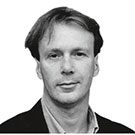John Lewis-Stempel: 'Rewilding is half backwards-looking fantasy, half dystopian vision'
Those who make the case for rewilding ought to be careful — MUCH more careful — what they wish for, says award-winning nature writer John Lewis-Stempel.
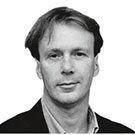
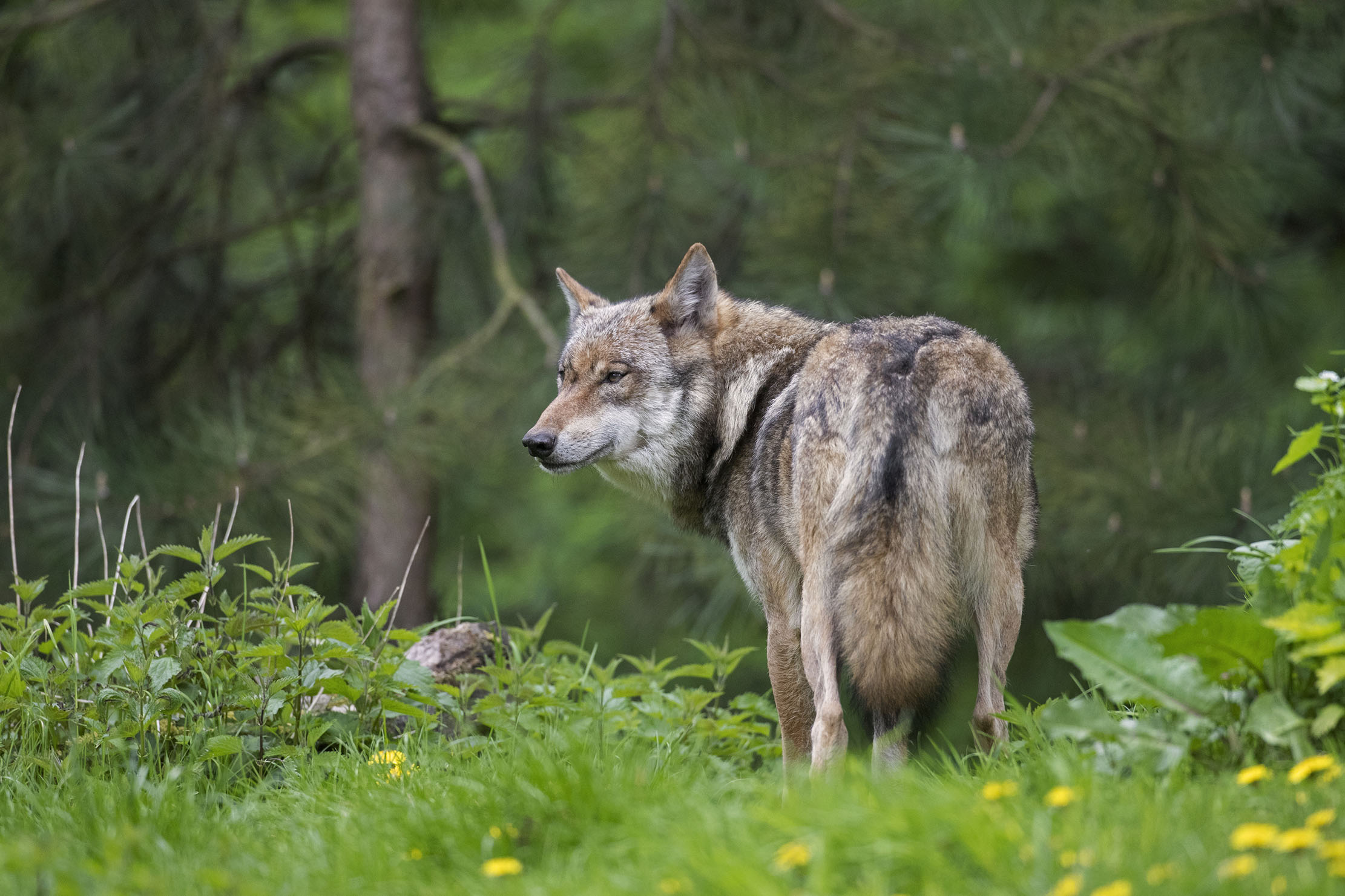
Exquisite houses, the beauty of Nature, and how to get the most from your life, straight to your inbox.
You are now subscribed
Your newsletter sign-up was successful
The wolf is outside, huffing and puffing. Threatening to blow my sheep-shed down. In France, where I am writing this, the reintroduced Canis lupus presently kills 15,000 sheep, cows, goats and horses annually. It’s a tragedy for French agriculture. Curiously, also a tragedy for Nature.
It was not meant to be like this. The grey wolf was commended for its potential ability to restore the ecosystem by preying on France’s wild boar. Keeping the swine in check, so to speak. Bringing natural balance to the countryside. Allowing Nature to manage Nature.
Alas, the return of the wolf to France illustrates the multiple problems with ‘rewilding’ as a conservation strategy — with fangs on. France has grassland habitats of outstanding biodiversity, but they only look wild. They were created by Bronze Age farmers and have been maintained ever since by sheep and shepherds. (The Causses in the Massif Central have UNESCO heritage status precisely because of pastoralist sheep-farming.) If the sheep go to the wild dogs, so does grassland habitat rich in fauna and flora. It will revert to woodland. Is such wolfy woodland better for Nature than biodiverse grassland? No. Just different.
The ‘pure’ wing of rewilding wishes to cover Western Europe in faux-primordial, self-regulating wildwood. Yet the world has moved on since the Stone Age. We live in the Anthropocene, we inhabit a planet touched from the top of Everest to the bottom of the Pacific Trench by human presence. The wolf has been reintroduced into a time no longer its own, a time of cities and farms, roads and pet ponies in paddocks. (Dolly, the pony of European Commission president Ursula von der Leyen, was killed by a wolf last year.)
The reintroduced wolf is fast becoming a pest in France; now, the government is committed to culling 19% of the national pack, currently 1,000 individuals, annually. Poor old wolves. They are the rifle-shot sacrifices on the altar of rewilding. This self-acclaims as modern, founded in the 1990s by American academics Michael Soulé and Reed Noss with a mantra of core reserves, migratory corridors and carnivores (‘the three Cs’); more accurately, rewilding originates in the Romanticism of the 18th century, and its previous expressions include the Wilderness philosophy of Victorian John Muir and the Nazis’ attempt to back-engineer cattle into aurochs to graze pristine forest straight out of the Nibelungen. (The ‘Nazi cattle’, more nicely known as Heck cattle after their Frankenstein creators, Heinz and Lutz Heck, survived the collapse of Hitler’s Reich and small herds can be seen in zoo parks.) Rewilding’s common thread? Anti-humanism. Nature free of cursed people.
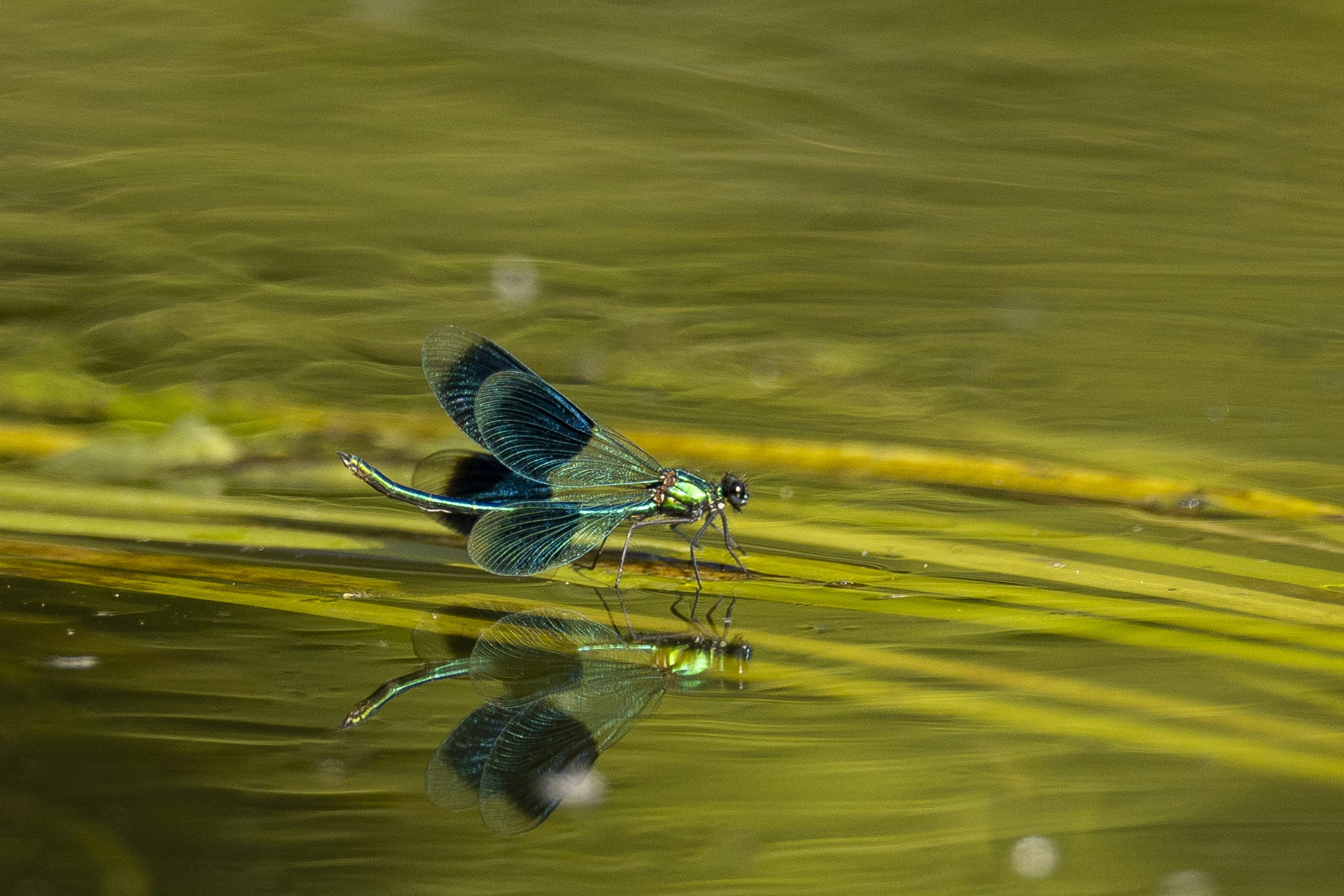
What do butterfly-shimmering hay meadows, a thick English hedge popping with yellowhammers, wood pasture whistling with willow tits and a cornfield full of poppies have in common? Like the Causses, they are transformations of landscape made by those most cursed of people, farmers. I say take a bow, farmers. You came into a Neolithic Europe largely made up, from Siberia to Ireland, of mono-cultural forest, and you diversified it into a myriad of wonders. Your cows — the current bête noire of ultra-rewilder George Monbiot — massively grew the number of dung beetles, starting an upwards natural food chain to the swallow. You do not get many swallows flying over wildwood; but they swirl and skirl over cow pasture.
Humans cannot better Nature, but they can enhance it. Take the pond. Square yard for square yard, a pond is a Nature-rich habitat hard to best and, due to its relatively small size, a complement to any landscape. In the British countryside, it is man’s pond which predominates over natural ponds, courtesy of the Victorian farmer who dug hundreds of thousands of the watery places. That Victorian farmer gave the moorhen a home, the dragonfly a kill zone, the frog a birthing pool.
Exquisite houses, the beauty of Nature, and how to get the most from your life, straight to your inbox.
Three thousand years of farming in the West have created distinct farmland ecologies, precious habitats that harbour dependent species. The clue is in their names: meadow pipit, corn marigold, cattle egret, sheepstare (the old name for starling), barn owl, harvest mouse. Due to the rampage of industrialised food production — I will not call it farming — some of these species have become extinct, others totter on the edge. Britain’s most threatened group of birds? Those of farmland, such as the grey partridge. Most threatened countryside flowers? Those of the arable field. Can rewilding help? Alas no, as it abjures human intervention and cornfields were never wild, so rewilding is impossible. Take human hands off the countryside and the pond, through ‘succession’, fills with leaf and litter and becomes scrub. You lose the pond. Ponds are slow suicides; they need human care. Allow the meadow to revert to wolfy wildwood: you deprive the skylark of a home. Rewilding’s fixation with re-creating ancient ‘British rainforest’ can amount to species eradication. Skylarks will not nest within 100 yards of a tree: in their eyes, it is a perch for a peregrine.
The priority needs of Nature, in the here and now, are saving the fauna and flora of traditional farmland’s ecosystems. Wolves must wait.
Rewilding is half backwards-looking fantasy, half dystopian vision. The purists have come up with one hell of an idea to rid the land of farming: microbial food, grown in vats, in urban factories. Hello Brave New World, hello ‘farm-free’ future, hello the South Downs rewilded as a wolf-prowled forest theme park, your guide a former sheep farmer like me. Goodbye working countryside, goodbye Ermintrude with your organic poo feeding two million insects a year. Goodbye the iconic British landscape of fields tied up with ribbons of hedges.
Rewilding does not eschew human intervention. It is the human choice to finish the work already being done by industrialised agriculture: to extinguish farmland Nature.
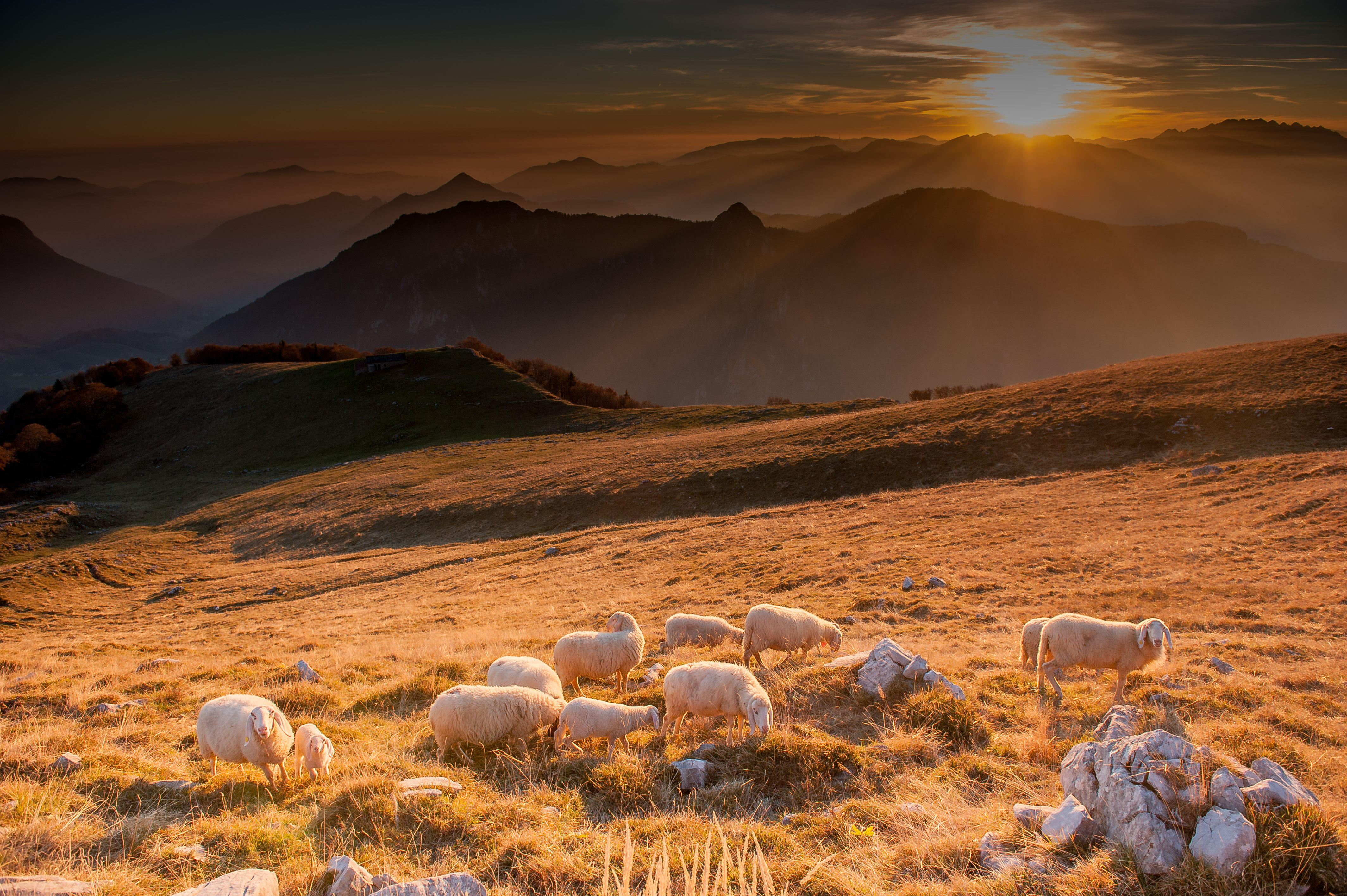
Credit: Alamy Stock Photo
John Lewis-Stempel: Here’s looking at ewe, kid
Tasked with shearing his neighbour’s sheep late on a warm June night, the clickety-click of John Lewis-Stempel’s metal hand-shears is
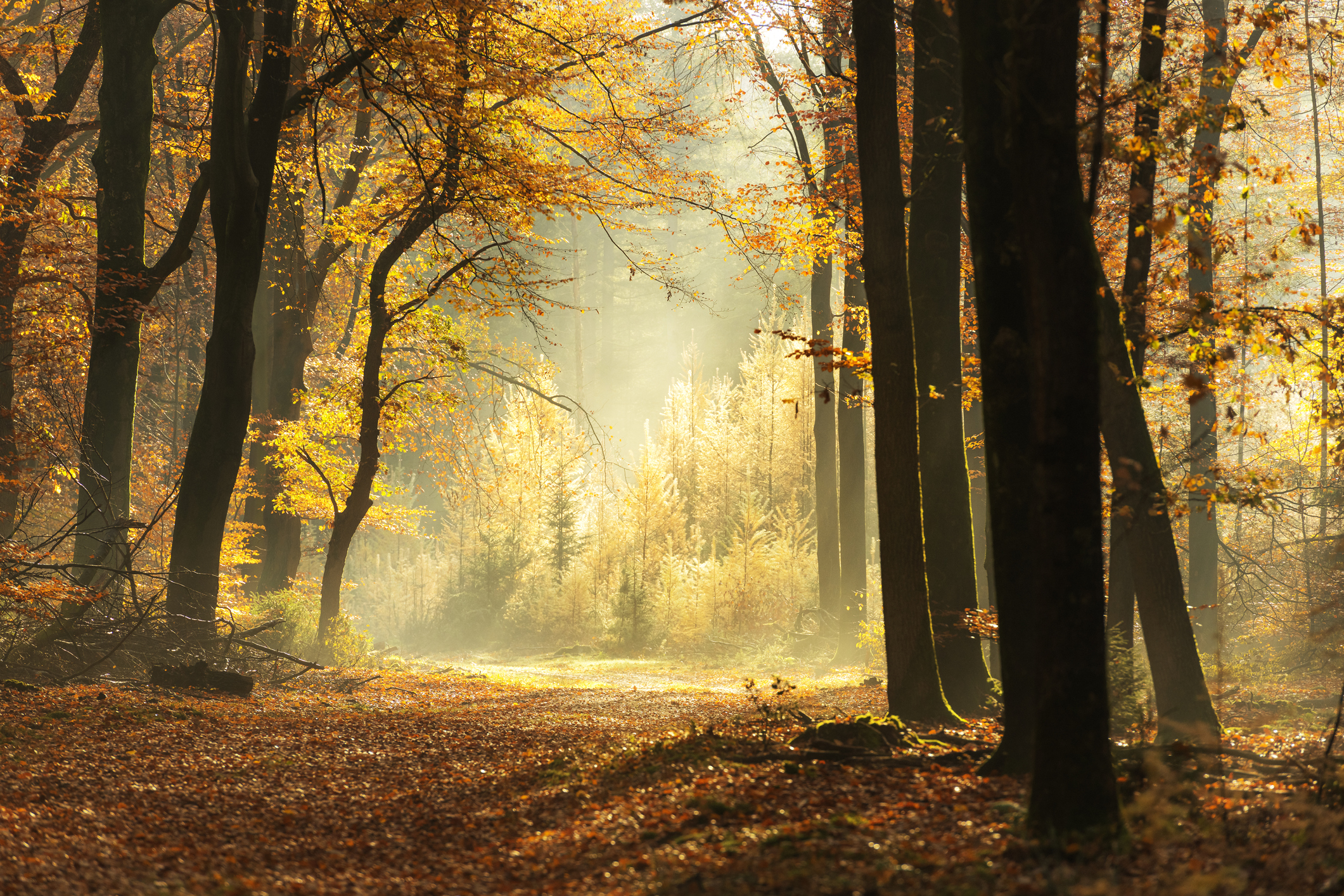
Credit: Getty Images
John Lewis-Stempel: The stained-glass window made by nature
Plodding home in the gloaming, through a wood stripped bare by November gales, John Lewis-Stempel stumbles across a magical fairy
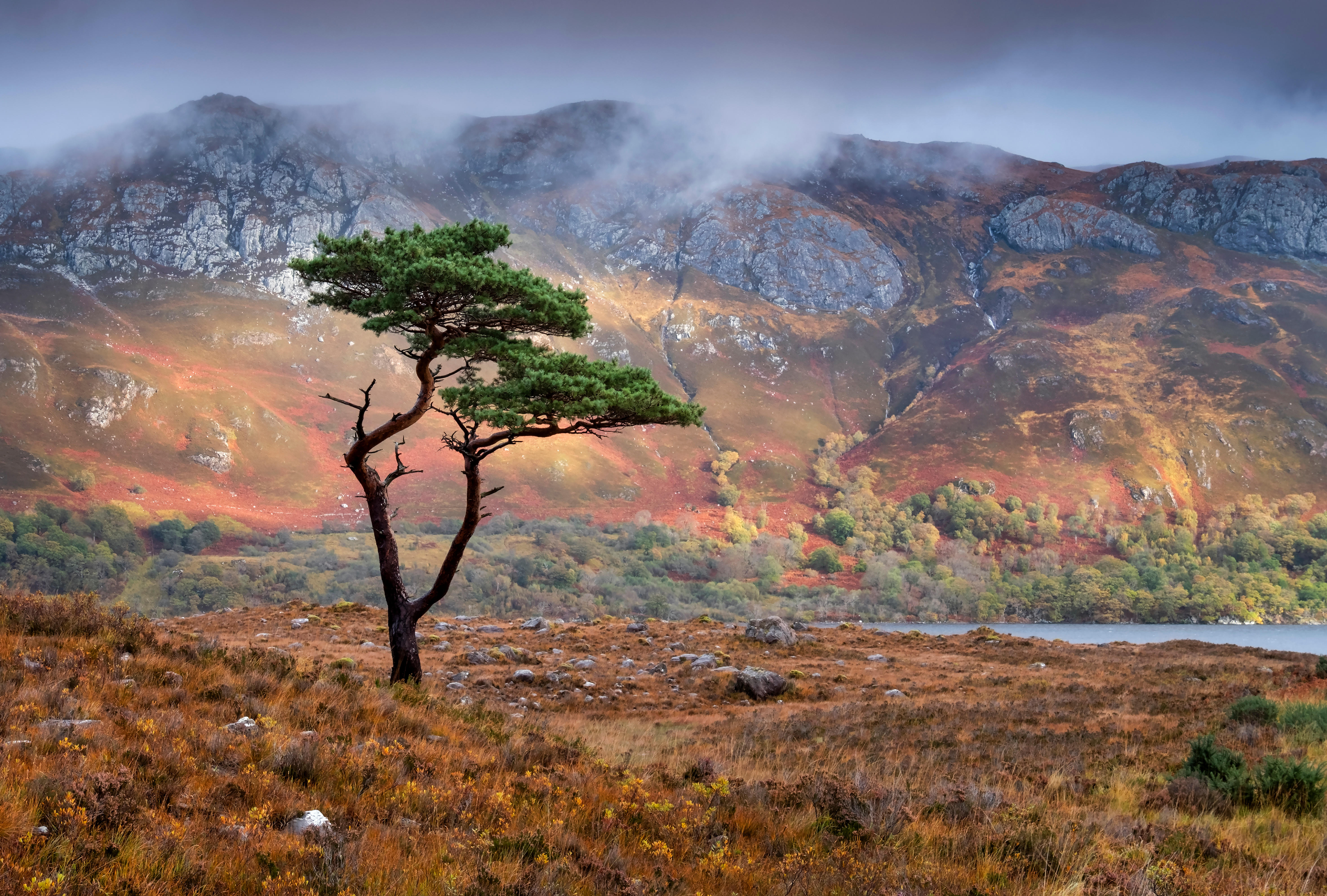
The 10 best trees you'll find in Britain, from Alder to Scots Pine
John Lewis-Stempel picks out his ten favourite British trees.
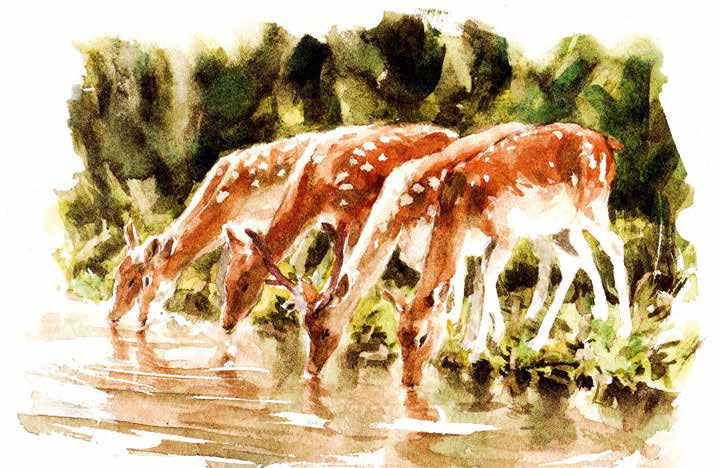
Credit: Philip Bannister / Country Life
The extraordinary writing which made John Lewis-Stempel Columnist of the Year
Read three of the beautiful, evocative articles which made Country Life's John Lewis-Stempel the Columnist of the Year.
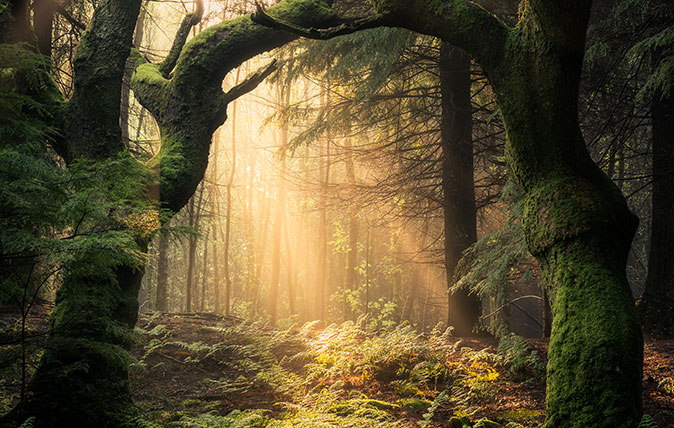
Credit: Guardians of the Forest, Llanrhychwyn, Snowdonia, Wales ©Simon Baxter / Landscape Photographer of the Year
A walk in the woods: Tranquility, beauty, and a 500,000-year-old connection to our ancestors
John Lewis-Stempel appreciates the calm tranquillity of woodland as he wanders through his own treasured Cockshutt Wood.
